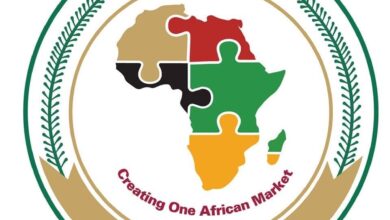Is Zimbabwe’s Micro Bank Targeting Youths Failing?

EmpowerBank is a registered deposit taking Micro Bank. Its purpose is to provide social and financial solutions to the financially excluded population with more focus on the youth. The bank is wholly owned by the Government of Zimbabwe. Additionally, the Government is on a drive to include the youth in profitable economic activities through this bank.
However, Zimbabwe is going through an economic downward spiral. This has been going on for more than two decades. Therefore, the bank’s initiative seems unable to provide loans for all applicants. Capacity to cater for the financial needs of successful applicants seems to be dwindling.
Products offered by EmpowerBank
One of EmpowerBank’s mandates is to offer loans to youth-led business projects cutting across urban, peri-urban and rural Zimbabwe. The bank aims to empower vulnerable communities to live in dignity. Also, for small businesses, they aim to help them upscale through wealth creation while generating employment opportunities. These products aim to help the youth grow in business and entrepreneurship and boost their financial inclusion.
Additionally, the bank offers a wide range of savings and loan products. These are tailored to meet customers’ needs. To access these loans potential borrowers must have an operating savings account with EmpowerBank. The loan products and services include Savings Products, EmpowerSave – Individual Savings accounts and Chikwata – Group Savings accounts. Also, other loans are MyGraft – Company Savings accounts, MulaLink – KYC Lite account and Powerkids – KYC lite account.
Furthermore, the Youth Business Starter Pack (YBSP) is also one of EmpowerBank’s loan products. It is a business financing loan product for turnkey business prototypes. Additionally, it includes packages for poultry, tobacco, horticulture, mining equipment, sport and culture, among others. Another loan product is Thuthuka, these are loans targeting farmers in the rural areas. Also, they are for micro to small informal business enterprises such as vendors and flea market traders. These are for those who require working capital finance to grow their businesses.
Additionally, the loan repayments match the cash flow generating capacity of the enterprise. These products are not exhaustive, but all products fall under three categories. These groups are For My Business, For Our Group and For Me. Here, the bank caters for the needs of people in these groups through loans.
Shortfalls of the bank
This strategy by the Government, of having a youth bank to help youths with financial inclusion, aims to help young Zimbabweans. However, some applicants wait for a response from EmpowerBank for more than six months. The bank’s Facebook page is full of complaints and frustrations from commentors. Time is money and such a waiting period can be detrimental to the business.
Furthermore, it seems that the bank is overwhelmed by applicants. Some of the commentors mention how they were told the bank is out of money. Also, some complain of how EmpowerBank’s collateral requirements are not suitable for youths. This is just a fraction of some of the flaws the bank has that need to be addressed. The initiative by the bank is brilliant but the execution needs refinement.
EmpowerBank’s purpose is to provide social and financial solutions to the financially excluded population with greater focus on the youth. Nevertheless, the target recipients are failing to access these social and financial solutions. If they are failing it seems sustainability is unavailable. Additionally, Zimbabweans are already socially and financially vulnerable and any move to worsen this is unacceptable. The bank’s authorities need to look at this and come up with a solution to carry out its mandate.
However, one can argue that comments on Facebook do not fully represent the banks perceived shortcomings by commentors. Research on the bank’s effectiveness is the sure way of coming up with factual information. Also, possibility is there that some of the bank’s recipients are not active on social media. This is probable in a country like Zimbabwe where internet access is sporadic and expensive for the ordinary individual.




